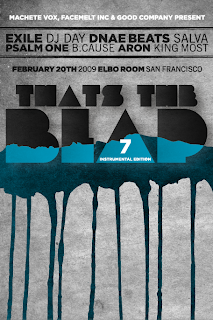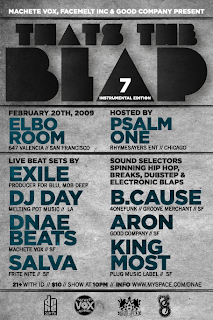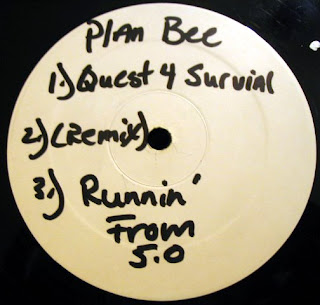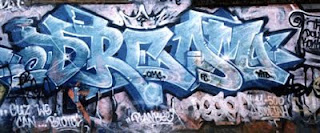Taken while researching Heart of Diamonds
Tags: romantic thriller, Congo, blood diamonds
helzberg diamonds|wholesale diamonds|loose diamonds|diamonds direct|chocolate diamonds|blue diamonds|black diamonds|loose diamonds wholesale|diamonds for sale|yellow diamonds|colored diamonds|discount diamonds|lab diamonds|natural stone tile|natural stone flooring|natural stone veneer|natural stone pavers|natural stone countertops|natural stone mosaic tile|natural stone retaining walls|natural stone cleaner|natural stone veneer prices|all natural stone|natural stone steps|natural stone fireplace


"...one of the most positive aspects of the book was Donelson’s realistic portrayal of the main characters and the warlike conditions in Africa."For links to more reviews, visit www.heartofdiamonds.com.

 It's all about proportion as beauty is about being just right. This step involves the art of measuring the proportion of the hand VS the stones and design of the ring. This requires several drawings in actual size. The next step is to draw a ring in 20-30 times its proportion so that the details can view before making the wax. This is the least favorite part as it involves more science than art.
It's all about proportion as beauty is about being just right. This step involves the art of measuring the proportion of the hand VS the stones and design of the ring. This requires several drawings in actual size. The next step is to draw a ring in 20-30 times its proportion so that the details can view before making the wax. This is the least favorite part as it involves more science than art.

 The next process is one of my favorites as it is similar to putting on a makeup. It starts with selecting quality stones that will radiate brilliancy and dimension. This process requires a steady hand and patience. If the stones are hammered into the setting with too much pressure, it cracks the stone. This is where we normally incur loss. The second picture shows how the ring is attached to red wax so that it can be attached to the workbench.
The next process is one of my favorites as it is similar to putting on a makeup. It starts with selecting quality stones that will radiate brilliancy and dimension. This process requires a steady hand and patience. If the stones are hammered into the setting with too much pressure, it cracks the stone. This is where we normally incur loss. The second picture shows how the ring is attached to red wax so that it can be attached to the workbench.



 Twist your finger forward to the side, "Polka Dots" ring reveals the fun of the color combination as well as the luxury of the another two beautiful stones, Citrine and Blue Sapphires.
Twist your finger forward to the side, "Polka Dots" ring reveals the fun of the color combination as well as the luxury of the another two beautiful stones, Citrine and Blue Sapphires. The top and the bottom view are the "richest" views as you can see every color and every stone types used in this ring. In this view, you see 6 colorful dots are lying artfully along the curve of the ring. You can see a total of 5 colors (Orange, Green, Blue, Red, and White) and 5 stones (Citrine, Emerald, Blue Sapphires, Ruby, White Sapphires) in this view.
The top and the bottom view are the "richest" views as you can see every color and every stone types used in this ring. In this view, you see 6 colorful dots are lying artfully along the curve of the ring. You can see a total of 5 colors (Orange, Green, Blue, Red, and White) and 5 stones (Citrine, Emerald, Blue Sapphires, Ruby, White Sapphires) in this view. Even from the back view, you still can see traces of art from the poles and the side polka dots!
Even from the back view, you still can see traces of art from the poles and the side polka dots! "Polka Dots" Ring was designed with a lively feeling. This may be the reason why this ring looks fun and lively in every angle.
"Polka Dots" Ring was designed with a lively feeling. This may be the reason why this ring looks fun and lively in every angle. And this is why we are called 360Jewels.
And this is why we are called 360Jewels.

How do we fix the DRC?I replied:
If you define "we" as the US, I believe "we" can't do anything to fix the DRC--but the Congolese can. However, the US, the EU, and the AU can help the process along. The UN has a role, too, although I'm afraid that its authority and stature have been irreversibly impaired by its seeming impotence in the current crisis in the Kivus and Haut-Eule.Dave Donelson, author of Heart of Diamonds a romantic thriller about blood diamonds in the Congo.
The first step is to bring a halt to the lawlessness in the east through cooperative military action by legitimate armed forces. The current actions by Rwanda and Uganda in concert with the government in Kinshasa has the potential to accomplish that end (even though I am deeply suspicious of the real aims of those operations). The UN should be protecting the civilian population--as is their mandate--while this is going on. They're not, from the reports I've read, but they should be.
Once peace is restored, people can return to their homes and begin to rebuild their lives while the DRC begins the long, expensive development process. US, EU, and Chinese investment--not aid--will be key. One component in both keeping peace and promoting economic development would be establishment of a "common market" in the mineral-rich eastern provinces. This would encourage the flow of capital to the region, taking the place of rogue armies and slave labor in operating the mines and other concerns.
Many of my Congolese friends protest that their country's wealth should not be exploited by outside interests. They're right, of course, but they often fail to differentiate between investment and exploitation. Aside from peace, what the DRC needs more than anything else is capital. There is no reason that fair and equitable commercial partnerships can't be formed with foreign companies in the DRC as they are in the rest of the world. That's the only way that funds can be attracted to the DRC.
This is obviously a very brief, simplified overview of a very complex situation. Many, many obstacles have to be overcome before these things can happen. As an objective observer, however, I believe the Congolese people can and will achieve their country's full potential.
What do you say to those who would place blame for the DRC's dire circumstances on Belgium? ...on the U.S.?... on the Congolese people?I replied:
At the risk of sounding flip, there is plenty of blame to go around. Where do you start? The Belgians exploited the country for nearly a century, then essentially walked away. The Americans put Mobutu Sese Seko into office, then turned a blind eye while he systematically looted the nation for 30 years. Let's not forget that he enriched plenty of his Congolese supporters along the way, too.Dave Donelson, author of Heart of Diamonds a romantic thriller about blood diamonds in the Congo.
Who is responsible for the fighting today? Everyone. Despite all the finger pointing and ethnic propaganda, it's all a mad scramble for control of the country's wealth. Are there US and European businesses profiting from the illegally-operated mines? Certainly. The same holds true for China and many other Asian countries. The Rwandans and Ugandans are both agents of these foreign interests and operate on their own behalf as well, as do many, many Congolese.
Last night, I watched a documentary called "The Greatest Silence: Rape in the Congo". It makes clear that rebel soldiers are not just raping, but torturing. As insightful as it was, however, it failed to address a question I have been unable to answer with my research: What benefit is derived by the rebel militia groups from rape and torture?My response:
Soldiers/rapists in the bush were interviewed in the documentary and explained that they raped because they were told it was necessary to effectuate the safety and protection they received during battle from drinking a "magic potion". Another soldier explained, basically, that he rapes simply because he doesn't get a lot of sex and has needs. As perverse as those explanations are, they are at least the product of reason, albeit faulty. They did not address why they force siblings to have sex, why they twist the heads off of young children and why they mutilate women's genitals. What motivates this kind of behavior? Any ideas?
This is a question I've heard often and one I struggle with myself. As Lisa Jackson's film so eloquently shows, individuals justify horrible acts of rape and mutilation for their own personal reasons--motivations beyond the ken of people like you and me.Dave Donelson, author of Heart of Diamonds a romantic thriller about blood diamonds in the Congo.
Their leaders, though, have a fairly clear reason for encouraging these crimes: to intimidate and thereby control the civilian population. I often use the term "terror rape" because it is an act of terrorism little different in purpose from suicide booming in the Middle East or mass decapitation ordered by drug lords in Central America.
The terrorist wants to be feared, so the more outlandish the act, the further outside the bound of humanity, the more fear it can create. Fearful people do as they are told. They hand over food and money when ordered to; they work for nothing in mines or fields; they refuse to identify criminals to the authorities.
Terror rape is one of the most execrable tactics of war.






Thanks for the response. My girlfriend is living in Kinshasa working for Voyageur Airlines under the auspices of MONUC. She is a member of a flight crew that transports people and equipment around the DRC as needed. Accordingly, I have been researching the DRC's history and current predicament.I responded:
I now understand the point you are making with that figure. My issue with the figure you cited was that it gives the impression that 90% of the DRC enjoys safety and order. My understanding, and you seemed to allude to it, is that even where the militias do not operate, crime and health conditions are nearly as dangerous. Would you agree with that?
Yes, that is a good assessment. While there may not be military operations throughout Congo, there is certainly much that remains to be done in the administration of justice, health care, education, and many other areas of development that were retarded by first the Mobutu regime and then the 1998-2003 war. Elections in 2006 were a good step, but a baby one, toward helping the DRC achieve its potential.Dave Donelson, author of Heart of Diamonds a romantic thriller about blood diamonds in the Congo.
from where do you get the figure of 90% as the percentage of the DRC living in relative peace, as you wrote here, and what qualifies as "relative peace"?I wrote back:
Good question and thanks for raising it. My statement that 90% of the DRC lives in relative peace came from several sources, including Congolese friends of mine who have been in the country recently and a conversation I had with UN Ambassador Ileka Atoki about a month ago. It's not a scientific figure at all, but serves to illustrate the point that the entire vast nation is not at war.We've since exchanged some longer notes, which I'll post in the coming days.
While conditions are far from ideal and tensions exist in many other parts of the DRC, the fighting that's drawing all the headlines is restricted currently to the eastern and northeastern provinces. The situation there is not good, as I'm sure you know, but the rest of the country is "peaceful" by comparison.
I hope this clarifies the post and thanks for following my blog. Please feel free to comment (or discuss matters via email) if you feel so inclined.
EASTCHESTER, N.Y. (AP) — Police say a man who was waterproofing the foundation of a diplomatic residence in New York City's northern suburbs has been rescued after his trench collapsed and buried him to his chest.I really didn’t pay it too much attention, until the end, when the announcer said that the house was owned by a diplomat of the Democratic Republic of the Congo! I immediately thought of that scene in your book, where Valerie is touring the mine and a worker slips in the trench! So, I sent an email to my students asking them to read the story, with the following questions and comments:
Eastchester police Chief Timothy Bonci (bahn-SEE') says the man was pinned against the home's wall for two hours or more before being pulled out at 5:30 p.m. Thursday. He says some of the digging had to be done by hand.
The worker's name has not been released. He has been taken to a hospital, but his condition isn't immediately available.
“Can’t you just picture the injured man wallowing in the mud like the workers in Gary Peterson’s mine (p. 80)? Can’t you just imagine the injured man being carried over the shoulder like a sack of potatoes by Captain Yoweri or one of his FIC henchmen to be deposited at Jaime’s clinic? Apparently, the Congolese provide no better working conditions for their workers here in the US than they do back home in the Congo!”The more things change, the more they stay the same! --Joyce










